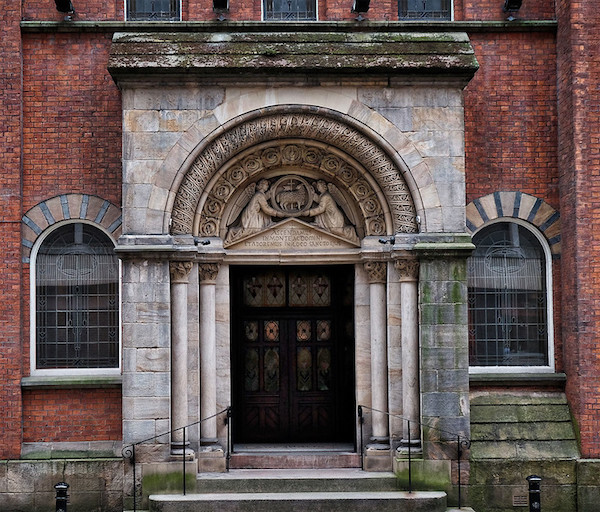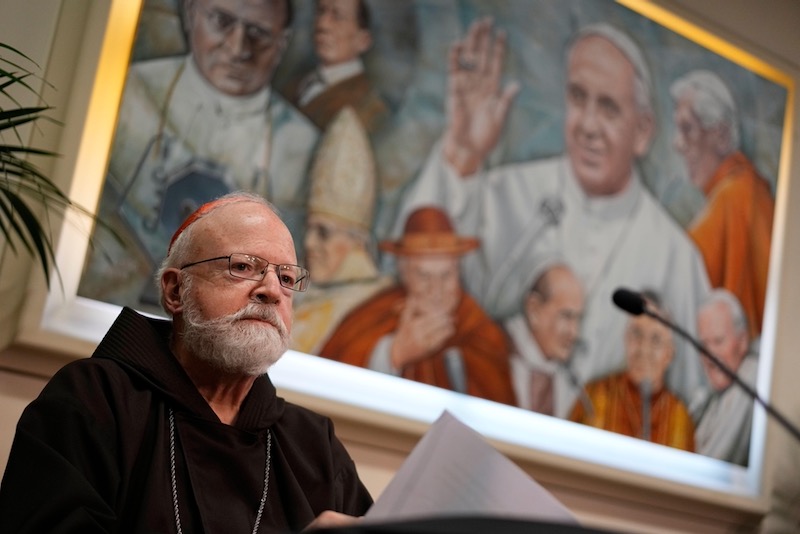The Vatican’s safeguarding body is to update its safeguarding guidelines for bishops’ conferences worldwide.
Cardinal Sean O’Malley has admitted the Holy See’s child protection commission has experienced “growing pains” following their meeting in Rome last week.
The Pontifical Commission for the Protection of Minors gathered as a group on 3-6 May for the first time since Fr Hans Zollner, one of the Church’s leading child protection experts, resigned. He stood down, citing concerns about how the commission was being run.
Cardinal O’Malley, the commission’s president, said that the safeguarding body has moved in a “more impact-focused direction”, which has been “both steep and fast for all of us”. A communique accompanying his statement explained the commission was working on a series of initiatives, including updated safeguarding guidelines for bishops’ conferences and ensuring churches in the global south are adequately resourced to tackle abuse. They have also moved from their tiny offices inside the Vatican to the 16th-century Palazzo Maffei Marescotti, Rome and have increased staffing numbers.
The commission was founded in 2014 to advise the Pope on safeguarding measures, accompany victims and support local bishops’ conferences in establishing effective safeguarding and reporting mechanisms. Cardinal O’Malley, 79, renowned for his work in tackling the abuse scandal in Boston, has been the president since its inception.
But the resignation of Fr Zollner has come as a huge blow and plunged the commission into crisis. The German Jesuit is widely seen as one of the church’s most credible figures in combatting abuse. He has travelled the world assisting bishops on safeguarding. Zollner advises the Diocese of Rome on safeguarding and runs an anthropology centre which offers courses on deepening understanding of abuse and its prevention. When he stood down, he cited concerns about “responsibility, compliance, accountability and transparency”, including how decisions were made and a lack of financial accountability.
“Is that it?” Marie Collins, an Irish abuse survivor and safeguarding expert previously part of the commission, tweeted in response to Cardinal O’Malley’s statement. “Fr Zollner’s serious concerns dismissed as down to ‘growing’ pains! Nothing on status in Curia, financing, who controls work…waste of time asking for real transparency.”
Fr Zollner is not the only former commission member to voice concerns. Sr Jane Bertelsen, the Congregational Leader of the Franciscan Missionaries of the Divine Motherhood, told The Tablet last year that “a collaborative, synodal style of working…was not evident in my last few months on the commission”, while Baroness Sheila Hollins, a former President of the Royal College of Psychiatrists, has also described some of the commission’s plans as “unrealistic”. She described Fr Zollner as “a man of integrity and tells it how it is”.
Criticisms of the commission include the decision to place it under the auspices of the Dicastery for the Doctrine of the Faith, which is involved in processing abuse cases and which some feel stymies the commission’s independence. Lady Hollins has said it is “anomalous to put a safeguarding commission into the department that deals with allegations against priests given that its brief is to prevent abuse and to address the care and healing of victims/survivors”.
Other concerns include the decision to enter a financial partnership with the Italian bishops’ conference, whereby the Italian Church will fund and exchange information and skills with safeguarding centres in the Global South. Although the Italian Church has announced a study of internal records on clerical child sex abuse covering 2000-2020, it has resisted a deep and wide national investigation into how abuse was handled. Mrs Collins has questioned whether the commission is still working on structures to ensure best practices for safeguarding or whether it is focussed on fundraising for initiatives.
The criticisms of former members appeared to centre around the leadership of the secretary of the commission, Fr Andrew Small, a British-born priest who was previously director of the Pontifical Mission Societies in the United States. He does not have a professional background in the field of safeguarding.
Pope Francis met the commission last Friday and sought to encourage them in their work. He said it was right that they were “addressing inequalities within the Church through training programmes and assistance to victims, in Africa, Asia and Latin America” and he mentioned his meetings with Comboni abuse survivors from the UK and Ireland to emphasise the importance of listening to victims.
He asked the commission to keep him informed of their efforts and to produce an “annual report”, which he also asked for in his 29 April 2022 address to the commission. Fr Small, however, has said the commission won’t be able to produce its first annual report until 2024.
For more: “The urgent case for action over the clerical sex abuse crisis in the Catholic Church”



 Loading ...
Loading ...